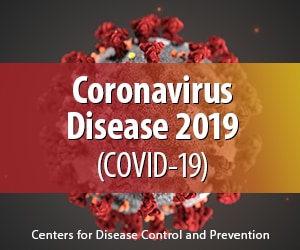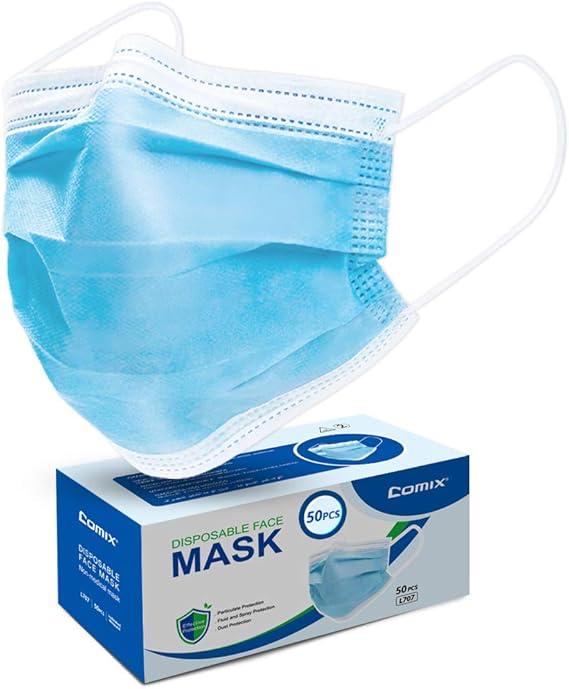FAQs on Coronavirus (COVID-19)

First Things First – Direct Links to Coronavirus News
Click for the latest Coronavirus news directly from Fox News, CNN, ABC News, CBS News, BBC News, NBC News, NPR News, USA Today.
Like our Facebook Page!
What is Community Spread and How Does it Relate to COVID-19?
You may have heard the term “community spread” as of late and wondered how it relates to the coronavirus. Community spread simply refers to the spreading of an infections disease in a given group of people.
For example, Coronavirus-2019 is thought to have started in a wildlife and seafood market in the Wuhan Province of China. Such a busy marketplace bustling with people is a prime area for community spread to occur. “Early on, many of the patients at the epicenter of the outbreak in Wuhan, Hubei Province, China had some link to a large seafood and live animal market, suggesting animal-to-person spread” (CDC). Many people became infected before anyone even knew there was an infectious virus in the area.
What’s the Difference Between an Epidemic and a Pandemic? And Which is COVID-19?
 Many people are wondering what the differences are between an epidemic and a pandemic. An epidemic is a situation in which a disease is actively spreading in a community. Typically an outbreak is referred to as an epidemic if the disease spreads to a large number of people in a short period of time (two weeks or less).
Many people are wondering what the differences are between an epidemic and a pandemic. An epidemic is a situation in which a disease is actively spreading in a community. Typically an outbreak is referred to as an epidemic if the disease spreads to a large number of people in a short period of time (two weeks or less).
By contrast, a pandemic describes a disease that spreads across a great distances, either over numerous towns and cities or even countries and continents. An example of a pandemic is the 1918 Spanish Flu that spread across the world.
As of March 11, 2020, the World Health Organization (WHO) declared COVID-19 a global pandemic. Many countries around the world now have mandated quarantines or lock-downs. Several states in the US have closed down restaurants, movie theaters, bars, and other social gathering places for at least two weeks, if not more. It’s important that you follow the guidelines where you live in order to help stop the spread of COVID-19.
How Does COVID-19 Compare to the Flu?
In the US alone, the seasonal flu has caused roughly 34 million infections and 20,000 deaths this season according to the Centers for Disease Control (CDC). As of March 2023, 2020, the novel coronavirus has killed over 6.5 million people worldwide. Click here to see how flu symptoms compare to the COVID-19 virus.
The biggest issue with COVID-19 is that we don’t know how far it’ll spread nor how quickly it’ll spread. If too many people are critically ill at the same time, hospitals will be overwhelmed and people will die simply because there aren’t enough beds or respirators.
Some scientists are comparing COVID-19 to the 2009 swine flu pandemic. Swine flu is estimated to have killed between 151,000 and 575,000 people worldwide (CDC), and the new coronavirus could be even deadlier than that. Click here to see if COVID-19 has come to your state.
How Does COVID-19 Compare to Other Modern Epidemics and Pandemics?
COVID-19 is a different sort of virus in that it’s novel — that is, we haven’t seen it before. This makes it much more difficult to treat because doctors and scientists have to start from almost nothing to create a vaccine. It’s possible that other vaccines meant to treat other illnesses may work on the coronavirus, but it’s also possible that they won’t. Here’s how COVID-19 compares to some other modern epidemics and pandemics.
| Epidemic/Pandemic Name | Location | Death Toll (approximate) | Dates (approximate) | Speculated Disease |
|---|---|---|---|---|
| Coronavirus (COVID-19) | Worldwide | 6,887,000+ deaths (as of March 19, 2023) | 2019-present | Coronavirus Disease 2019 |
| Swine Flu | Worldwide | 150,000-575,000 deaths | 2009 | H1N1/09 virus |
| Zimbabwean Cholera Outbreak | Zimbabwe | 4,293 deaths | 2008-2009 | Cholera |
| Yemen Cholera Outbreak | Yemen | 3,886 deaths | 2016-2020 | Cholera |
| Kivu Ebola Epidemic | Democratic Republic of the Congo & Uganda | 2,253 deaths | 2018-2020 | Ebola |
| MERS (Middle East Respiratory Syndrome) | Asia | 862 deaths | 2012-2020 | MERS |
| SARS (Severe Acute Respiratory Syndrome) | Worldwide | 772 deaths | 2002-2004 | SARS |
| Zika Virus | Worldwide | 53 deaths | 2015-2016 | Zika Virus |
What Supplies Do I Need in Case of a Quarantine for COVID-19?
In case there is an emergency quarantine in your area for Coronavirus-2019, it’s important to have all the supplies you need before you need them. We’ve put together a Home Safety Kit Checklist for Coronavirus-2019 to make sure you are properly stocked.
- One-step cleaner disinfectant that is ready to use.
- Effective against outbreak-causing viruses such as influenza A, influenza B, and norovirus.
- Suitable for use on spills and larger areas, making it an ideal professional bleach cleaner.
- Recommended for use in healthcare settings, including hospitals, medical facilities, dental offices, veterinary offices, and long-term care facilities.
- 50 masks in total.
- Made with a 3-layer non-woven, non-latex fabric for effective protection.
- Soft, non-irritating, comfortable, and breathable.
- Adjustable earloop and nose clip that fits most faces.
- Ideal for various environments such as home, office, school, gardening, construction, and other public areas.
- Disposable and recommended for one-time use only.
- 100% free of latex, rubber, powder, and protein for skin-friendly use.
- Excellent quality durable Nitripride vinyl-nitrile blend gloves for extra strength and comfort.
- Ambidextrous design with bulk value of 100 gloves for easy use and storage.
- Endless uses for medical professionals and beyond, including cooking, painting, cleaning, and more.
Can I Take Antibiotics if I Get COVID-19?
No. According to the CDC, there is no current cure or treatment for Coronavirus-2019. Furthermore, antibiotics only work against bacteria and not against viruses. They should not be used to treat COVID-19.
Should I Wear a Mask to Protect Against COVID-19?
Earlier in 2020, the CDC didn’t recommend that you wear a mask unless you had symptoms. In April 2020 however, the CDC is now recommending that anyone out in public should wear a mask. Wearing a mask can help to prevent the spread of Coronavirus-2019. Check with your local health officials where you live and follow their instructions.
Is it Safe to Order Packages From China?
The CDC states that there is no risk of infection from COVID-19 on packages from China (CDC). It should be noted however that coronaviruses can survive on certain surfaces for extended periods of time.
“The analysis of 22 studies reveals that human coronaviruses such as Severe Acute Respiratory Syndrome (SARS) coronavirus, Middle East Respiratory Syndrome (MERS) coronavirus or endemic human coronaviruses (HCoV) can persist on inanimate surfaces like metal, glass or plastic for up to 9 days” (Kampf et al., 2020).
What Should I Do if I Need to Get Tested?
Despite President Trump claiming that anyone who needs a test can get one, that isn’t exactly the case according to key people in his administration: “The health and human services secretary, Alex M. Azar II, cautioned that only those who have gone through a doctor or medical professional can be approved for a test” (Weiland, 2020).
If you think you might have COVID-19, the first thing you should do is call your local health department. Do NOT go to the doctor’s office or the hospital as you could spread the disease to others if you’re positive. From there, your local health officials should be able to direct you to the proper plan of action.
Can Someone Who’s Been Quarantined Spread COVID-19?
The incubation period for Coronavirus-2019 is thought to be 2-14 days. The point of a quarantine is to ensure that a person or group of persons does not have the infection. After the 14-day quarantine is over, the person is not considered to be a risk for spreading the virus.
“Someone who has been released from COVID-19 quarantine is not considered a risk for spreading the virus to others because they have not developed illness during the incubation period” (CDC).
Should I Travel Right Now?
Probably not. Many countries have shut down borders and have urged people to stay home for non-essential travel. Traveling during the COVID-19 outbreak can be risky, especially if you’re elderly or have underlying health conditions. For any non-essential travel, it might be a good idea to postpone that family vacation or trip to the beach. Be sure to keep up with current travel precautions.
Will Warm Weather Stop COVID-19?
No one knows for sure. Other infectious diseases like colds and the flu tend to spread more during the winter months although that doesn’t mean it can’t be spread other times of the year. The CDC is continuing studies into how differing temperatures may affect Coronavirus-2019.
What About Alternative COVID-19 Treatments?
There are some blogs and websites that purport the use of alternative treatments for the coronavirus. The FDA is taking hard steps to prevent the spread of fraudulent COVID-19 treatments. Thus far, the CDC does not condone any of these alternative treatments:
- Do not spray alcohol on yourself or drink large amounts of alcohol. This will not prevent you from getting infected with COVID-19. If you aren’t convinced, read the article “44 people killed from alcohol poisoning in Iran trying to ward off coronavirus.”
- Do not spread sesame oil on your skin. While it might make your skin nice and soft, it isn’t going to protect you from the coronavirus.
- Eating a lot of garlic isn’t going to stop you from getting infected. While it’s true that garlic has antibacterial and antifungal properties, simply eating tons of garlic isn’t going to stop you from getting infected.
- Do not use bleach wipes on your skin. Bleach wipes are meant for hard surfaces and are not meant to go on your skin. Using them in this way can cause skin irritation and rashes.
- Do not drink Miracle Mineral Solution. Miracle or master mineral solution is sodium chlorite and is meant to be a cleaning solution. Drinking this product is akin to drinking bleach.


